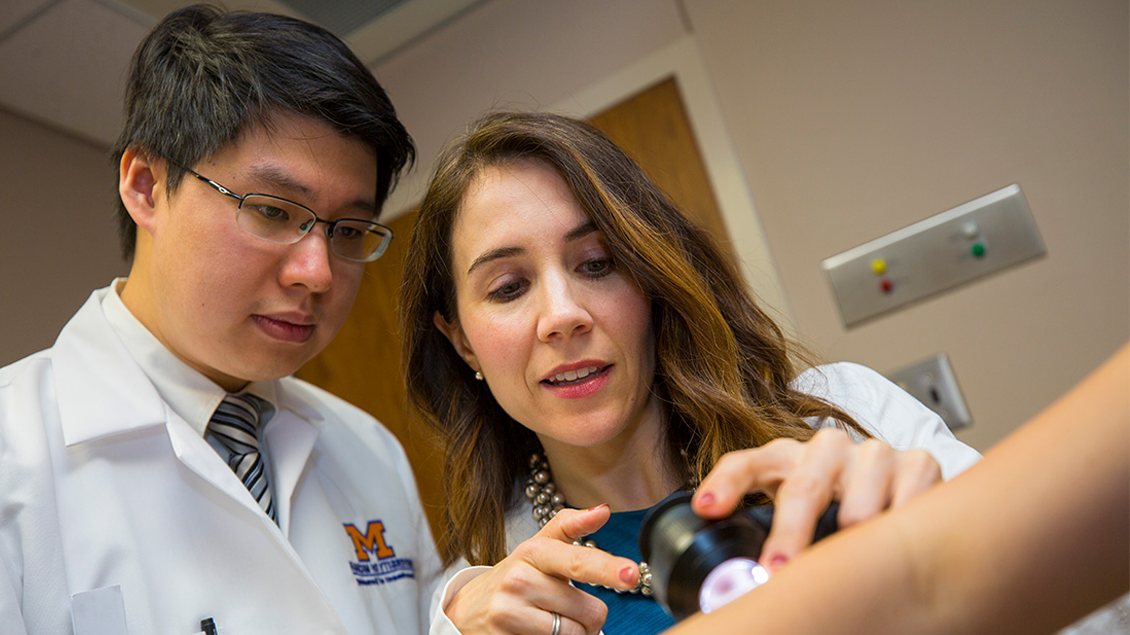
Learn From Industry Pioneers
Train under a tradition of clinical and research excellence that began in 1890 and continues, on the forefront of the industry, today.
The U-M Medical School Department of Dermatology provides integrated basic science and clinical training to medical students, dermatology residents, clinical fellows and other physicians, in one of the most sought-after programs of its kind.
We build the foundation that enables future practitioners to provide excellent patient care, while empowering bold research that’s advancing medical knowledge and translating to clinical treatments, every day.
We find a new reason to love Ann Arbor nearly every day — outdoor activities, cultural experiences, a growing food scene, and a welcoming atmosphere are just a few. Explore all that the area has to offer.





